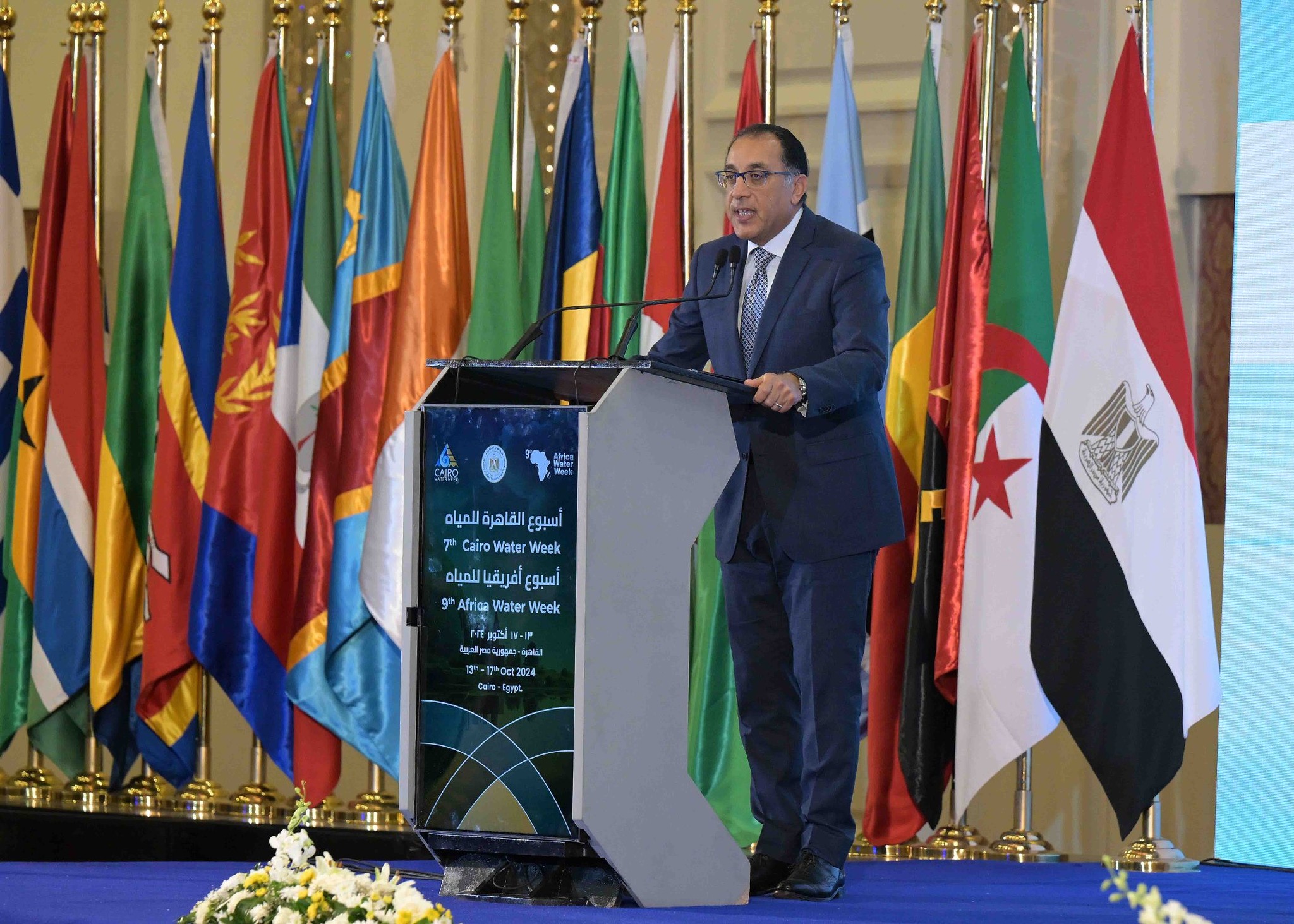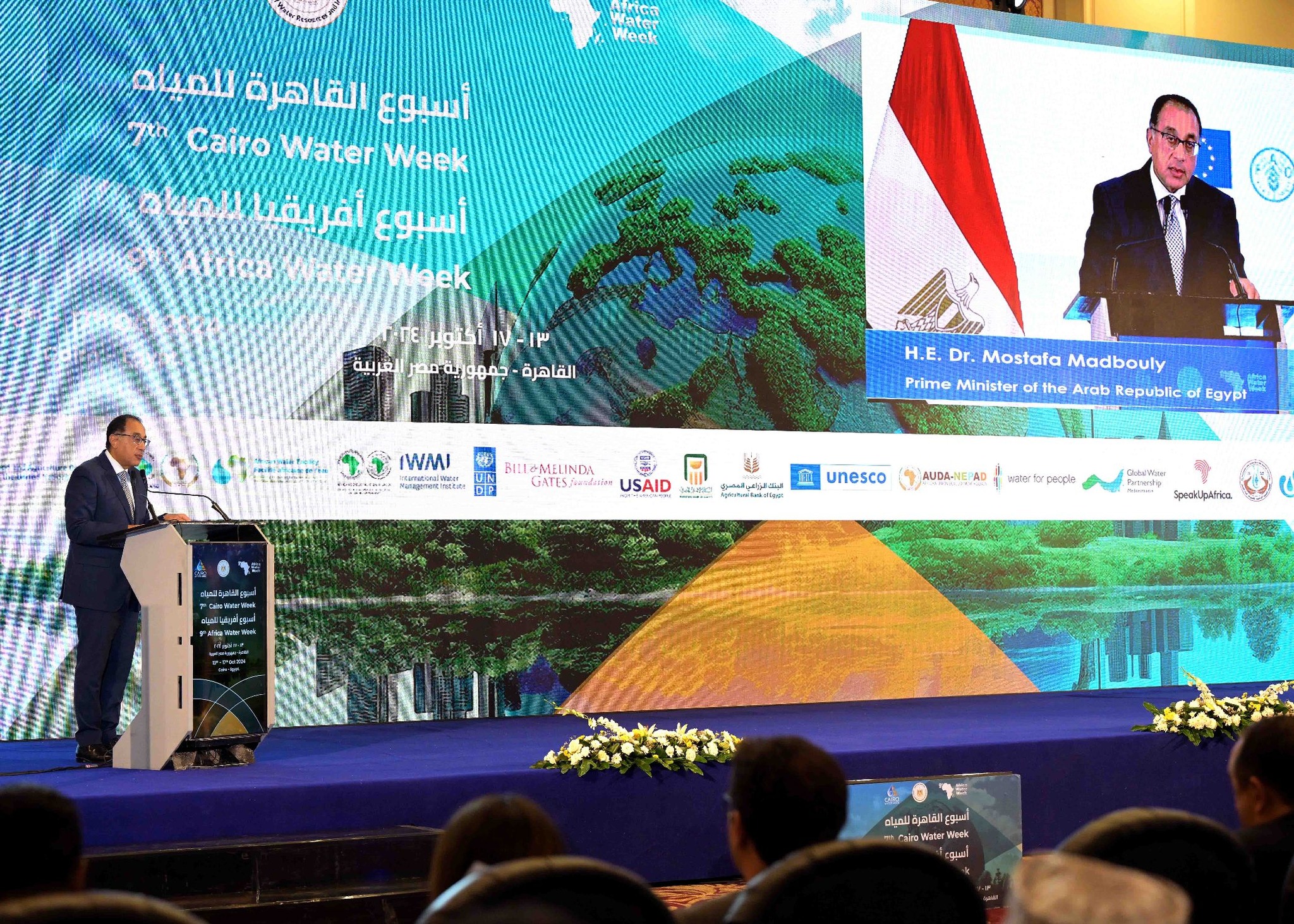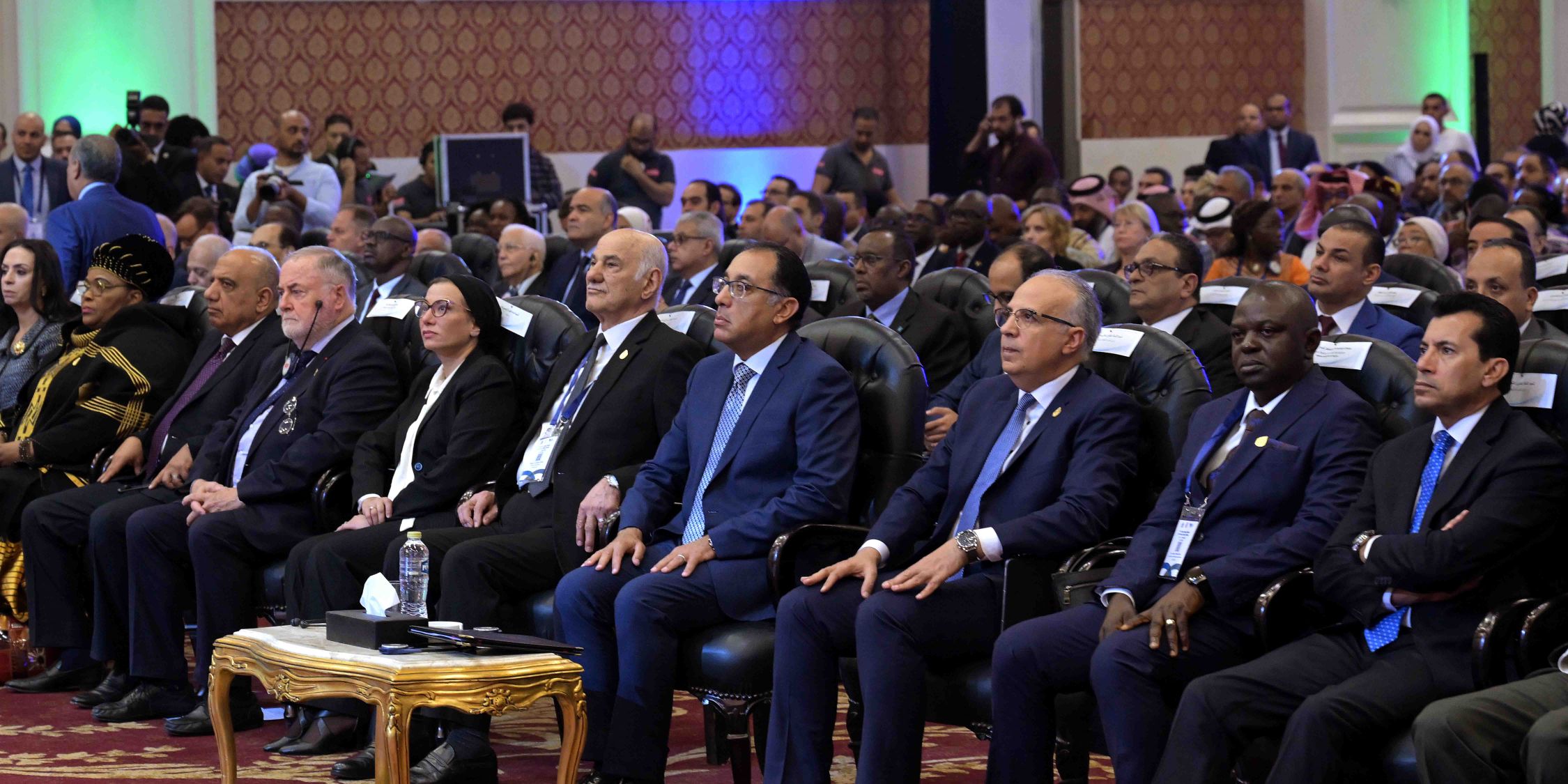
Egypt’s Prime Minister Mostafa Madbouly delivers a speech at the opening of the 7th Cairo Water Week and the 9th Africa Water Week, 13 October 2024 – Cabinet
CAIRO – 13 October 2024: Prime Minister Mostafa Madbouly has warned against the non-cooperative unilateral operation of the Grand Ethiopian Renaissance Dam (GERD) during future prolonged drought periods in Egypt, saying it can lead over 1.1 million people to lose their livelihoods.
Delivering a speech during the opening of the 7th Cairo Water Week and the 9th Africa Water Week on Sunday, Madbouly warned that the persistence of such unilateral practices by Ethiopia can cause the disappearance of nearly 15% of agricultural land in Egypt.
He emphasized that such negative repercussions due to the dam threatens to increase social and economic tensions, potentially leading to displacement and migration, and exacerbating illegal immigration across Egyptian borders.

Madbouly highlighted GERD as a notable example of the risks resulting from unilateral actions that do not adhere to the principles of international law on shared river basins.
He stated that Ethiopia started dam construction on the Nile River over 13 years ago, without any consultation or sufficient studies regarding safety or the economic, social, and environmental impacts on neighboring countries.
The prime minister emphasized that the unilateral GERD construction violates internatonal law, including the Declaration of Principles (DoP) signed by Egypt, Sudan and Ethiopia in 2015, and contradicts the presidential statement issued by the United Nations Security Council in September 2021.
Madbouly warned that Ethiopia’s continuation of unilateral actions regarding GERD poses an existential threat to over 100 million Egyptian citizens.
“Despite the prevailing belief that hydroelectric dams do not cause harm, the non-cooperative unilateral operation of the Ethiopian dam could lead to severe consequences if these practices persist during prolonged drought periods,” he warned.

GERD DILEMMA
Egypt and Sudan have engaged in talks with Ethiopia for more than a decade in a bid to secure a binding agreement concerning the GERD to protect their water rights. However, Addis Ababa proceeded with dam filling and operation without the two downstream countries’ consent.
Egypt announced last year that the revived negotiation track over the long-standing dam dispute concluded, as the fourth and final trilateral round of failed to produce positive results.
Egypt attributed the breakdown to Ethiopia's persistent refusal of proposed middle-ground technical or legal solutions to safeguard the interests of all three countries.
In September, Abdelatty addressed a letter to the president of the United Nations Security Council, condemning Ethiopia's recent actions regarding GERD as a continuation of its provocative stance toward its neighbors.
He added that such actions "threaten the stability of a region, where most countries seek to enhance cooperation and integration among each other rather than sow discord among peoples bound by ties of brotherhood and shared destiny."
Later in September, Abdelatty raised the GERD issue before the high-level General Debate of the 79th session of the UN General Assembly (UNGA 79), stating that Egypt “will not turn a blind eye” to a threat to its existence.
Given Egypt's heavy reliance on the Nile for its water requirements, the country perceives the dam as a significant threat to its already strained water supply.
Egypt grapples with severe water shortages with a per capita water supply of around 550 cubic meters per year—well below the globally recognized threshold for water scarcity set at 1,000 cubic meters per person.
Egyptian President Abdel Fattah El-Sisi has stressed Egypt’s water share as a “red line.”
“No one should envision themselves as beyond the reach of our capabilities … Egypt's water is sacrosanct. Our response in case of [meddling with the Egyptian water share] will reverberate throughout the stability of the entire region,” Sisi said in press remarks in 2021.
BUILDING RESILIENCE
The Cairo Water Week 2024 kicked off on Sunday, centered around the theme: “Water and Climate: Building Resilient Communities,” in coincidence with the 9th Africa Water Week.

The event is held under the auspices of Egyptian President Abdel Fattah El-Sisi from 13 to 17 October in the presence of ministers, official delegations, senior officials in the water sector, scientists, international organizations and institutes, civil society organizations, women, farmers and legal professionals from various countries of the world.
The Cairo Water Week will underline the crucial role of water management in addressing the escalating climate change impacts and building resilience through a comprehensive approach.
The event provides a vital platform for experts, policymakers, and stakeholders to explore innovative solutions and collaborative initiatives through insightful discussions and practical workshops.
Comments
Leave a Comment